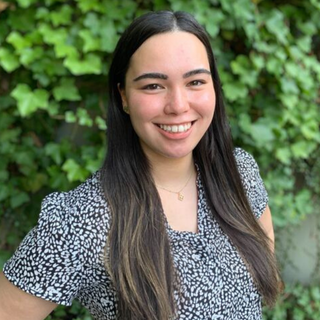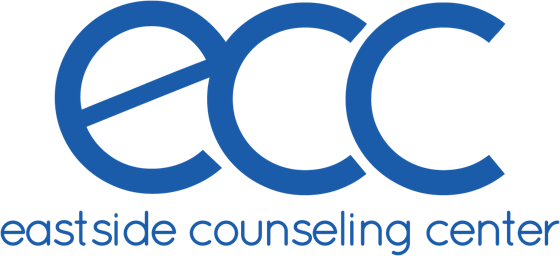Proudly serving Washington State.

Nina Reckinger
MHC Intern
Accepting new clients
Telehealth and in person
Children (5-12), Teens (13-17), Adults (18+)
Philosophy of Care
You’re the one people rely on. You keep it together, push through, figure it out. On the surface, you’re holding it down—but inside, it might feel like a quiet sense of chaos. Whether it’s anxiety, body image struggles, avoidance, or burnout, you might feel stuck in patterns that don’t reflect the life you want to live.
I work with people who are used to overfunctioning—who look “fine” but feel like they’re drowning in overthinking, perfectionism, self-sabotage, or emotional chaos behind the scenes. If that’s you, you’re not broken. You’ve been coping the best way you know how. Therapy is a space to pause, name what’s really going on, and begin shifting the patterns that are keeping you stuck.
I’m not the kind of therapist who just nods while you vent. I’ll ask questions, offer perspective, reflect back what I notice, and share practical tools to help you connect the dots. Some weeks that might mean building real-world coping skills; other weeks, it’s about sitting with grief, shame, or unmet expectations. Both are important. I draw from therapies like ACT, CBT, DBT, ERP, and motivational interviewing, but therapy with me is always shaped around you. I work best with teens and young adults navigating anxiety, disordered eating, body image distress, relationship patterns, life transitions, or ADHD traits. I also work affirmatively with LGBTQ+ clients and those exploring identity in any form.
Before entering this field, I worked as a nurse. What drew me in wasn’t just the patient charts—it was their stories. That background helps me approach therapy with both clinical grounding and human depth.Clients describe me as grounding, compassionate, and real. My style is collaborative, warm, and gently direct. You don’t need to perform or impress here. Just show up as you are—and we’ll go from there.
When I’m not in session, I turn to movement, connection, and creativity to ground me—dancing to country songs in my well-worn boots, spending slow Sundays in coffee shops, and recreating family recipes in the kitchen. These quiet little resets help me come home to myself and allow me to show up fully in the work we do together.
Education and Licensure
Master of Arts in Clinical Mental Health Counseling, Northwest University, expected graduation May 2026
Bachelor of Science in Nursing, Western Governor’s University, February 2022
Specialties
Avoidance & Procrastination
Body Image
Control/Perfectionism
Disordered Eating
Identity Development
Life Transitions
Relationship Issues
Mental Health Disorders
ADHD / Executive Functioning
Adjustment Disorders
Anxiety Disorders
Behavioral Addictions
Eating Disorders
Mood Disorders
Substance Use Disorders
Treatments
Acceptance and Commitment Therapy (ACT)
Behavioral Activation / Skills Training
Cognitive Behavioral Therapy (CBT)
Dialectical Behavior Therapy (DBT)
Exposure and Response Prevention (ERP)
Integrative
Motivational Interviewing (MI)
Clientele
Children (5-12)
Teens (13-17),
Adults (18+)
Couples
College Students
Emerging Professionals
LGBTQ+
Generalized Anxiety Disorder (GAD)
GAD affects 6.8 million adults, or 3.1% of the U.S. population, yet only 43.2% are receiving treatment.
Women are twice as likely to be affected as men.
GAD often co-occurs with major depression.
Panic Disorder(PD)
PD affects 6 million adults, or 2.7% of the U.S. population.
Women are twice as likely to be affected as men.
Social Anxiety Disorder (SAD)
SAD affects 15 million adults, or 6.8% of the U.S. population.
SAD is equally common among men and women and typically begins around age 13.
According to a 2007 ADAA survey, 36% of people with social anxiety disorder report experiencing symptoms for 10 or more years before seeking help.
Specific Phobias
Specific phobias affect 19 million adults, or 8.7% of the U.S. population.
Women are twice as likely to be affected as men.
Symptoms typically begin in childhood; the average age-of-onset is 7 years old.
Treatment For Anxiety
Psychotherapy or “talk therapy” can help people with anxiety disorders. To be effective, psychotherapy must be directed at the person’s specific anxieties and tailored to his or her needs.
To get an appointment scheduled with
Nina Reckinger Now
Contact Hours
Monday - Friday
9:00 am - 5:00 pm
Call Us
Kirkland: (425) 242-6267
Bellevue: (425) 590-9419
Our Offices
Kirkland Office
625 4th Ave, Suite 203
Kirkland, WA 98033
(425) 242-6267
Bellevue Office
4122 Factoria Blvd SE, Suite 405
Bellevue, WA 98006
Email Us
Helpful Links
© 2023 Eastside counseling center
© 2023 Eastside counseling center
Privacy Policy
Privacy Policy


